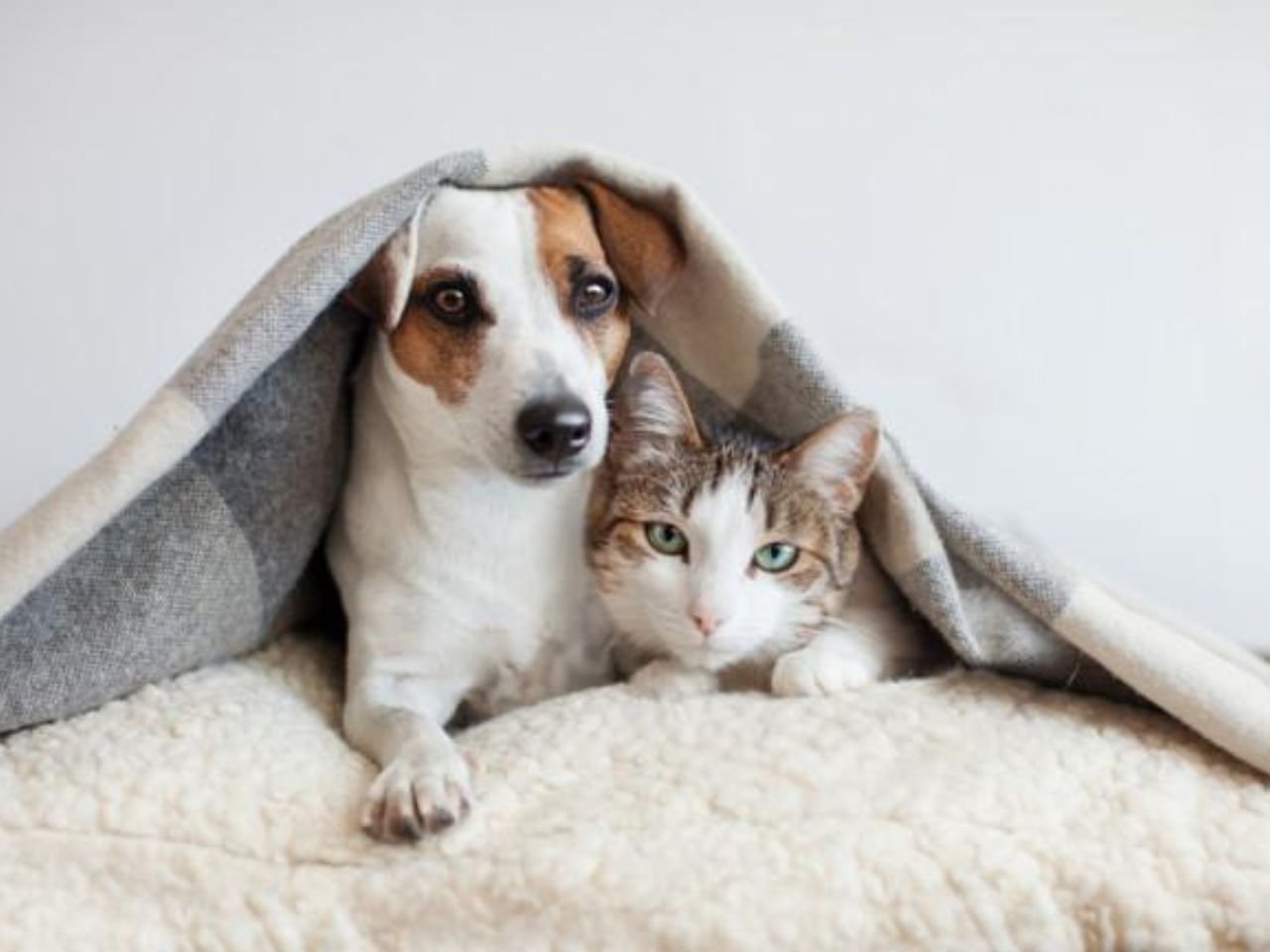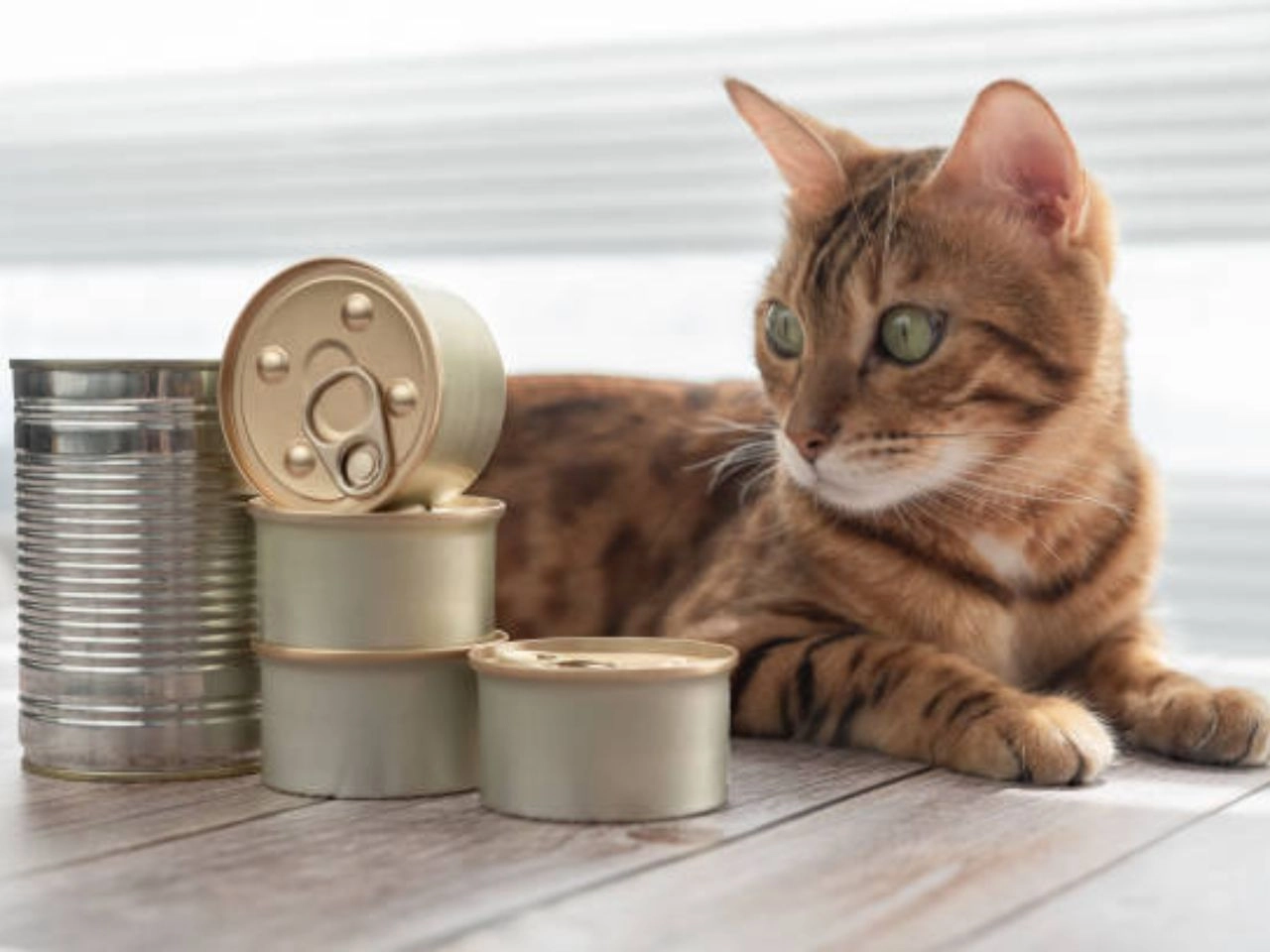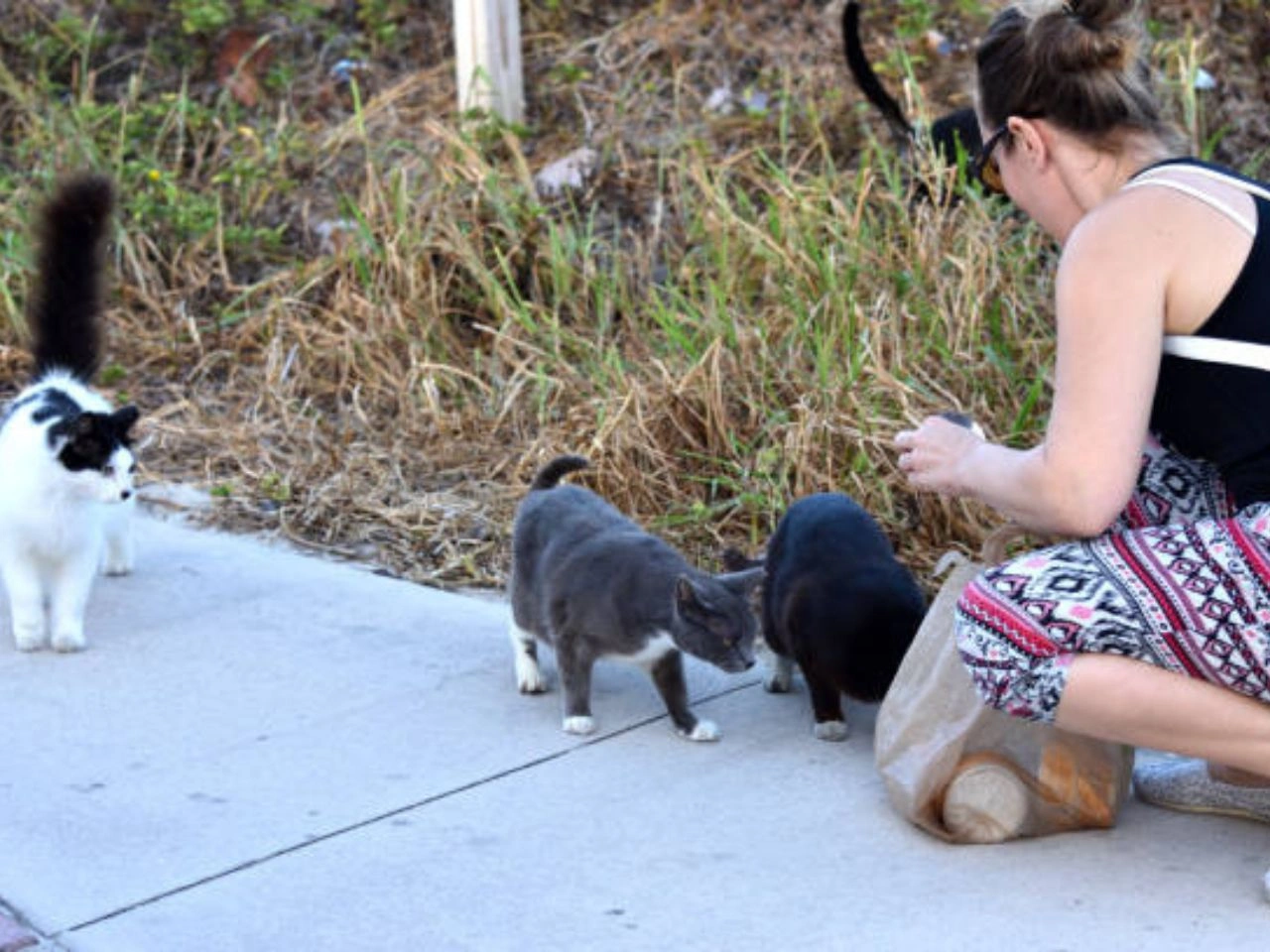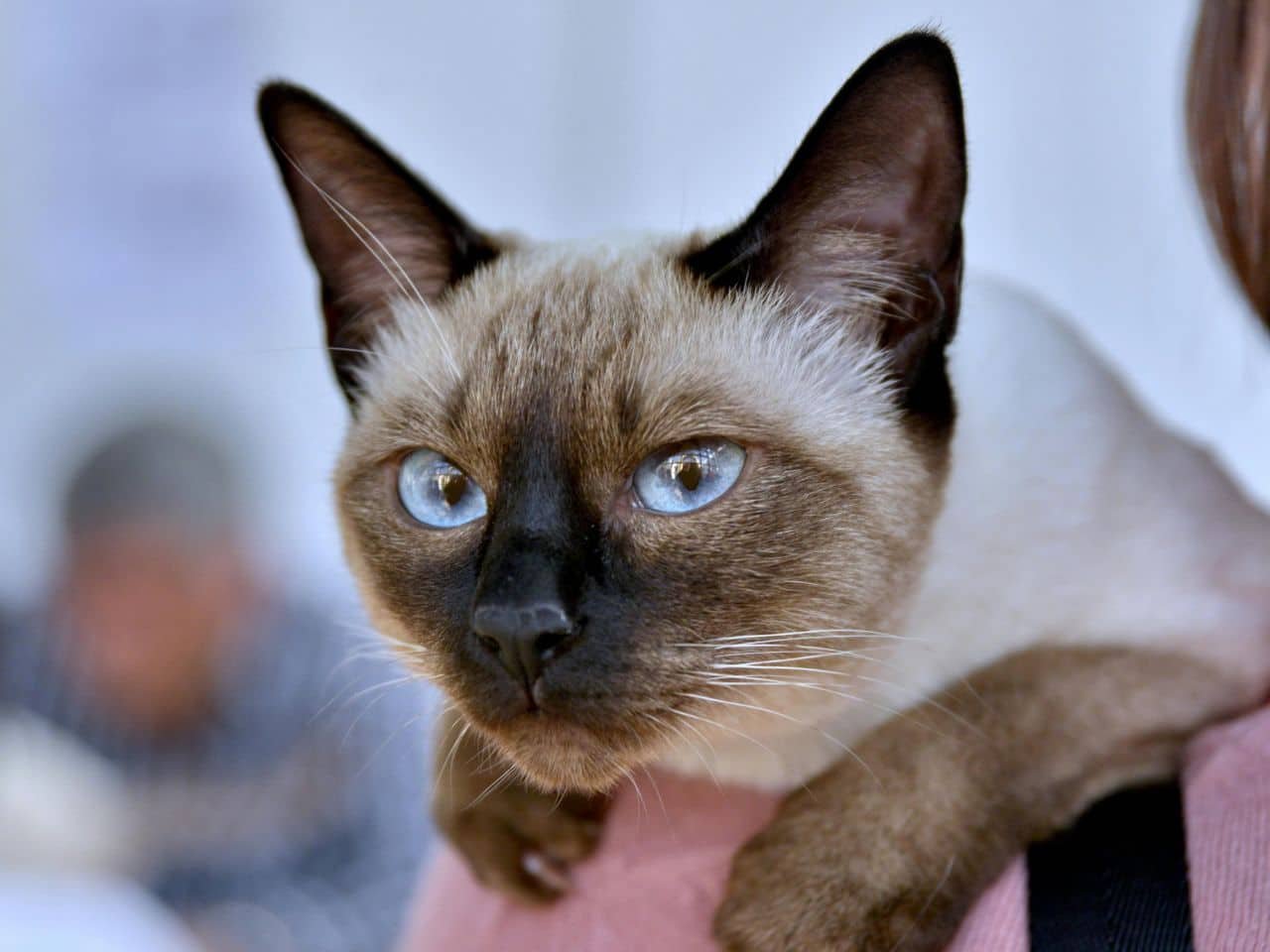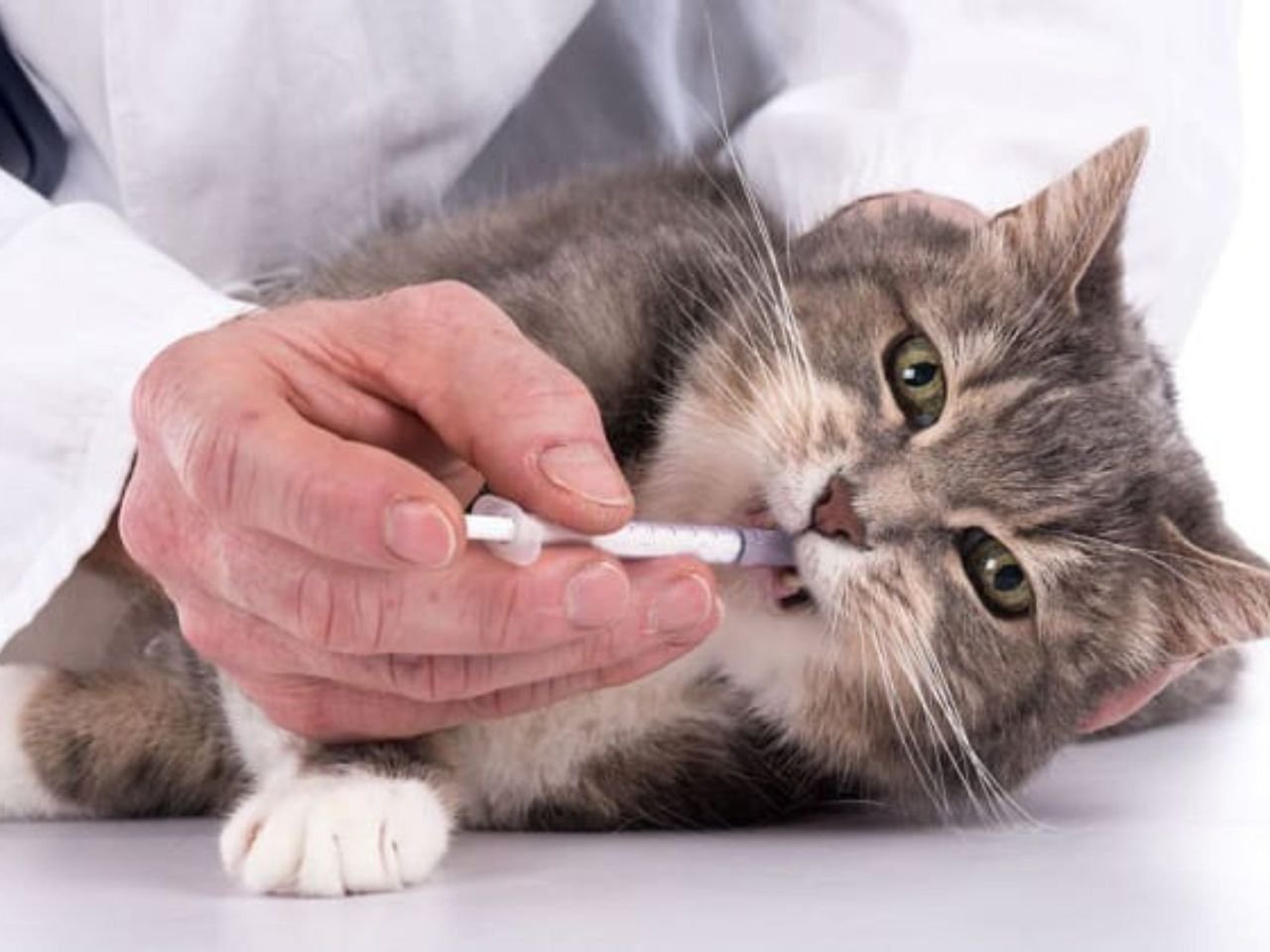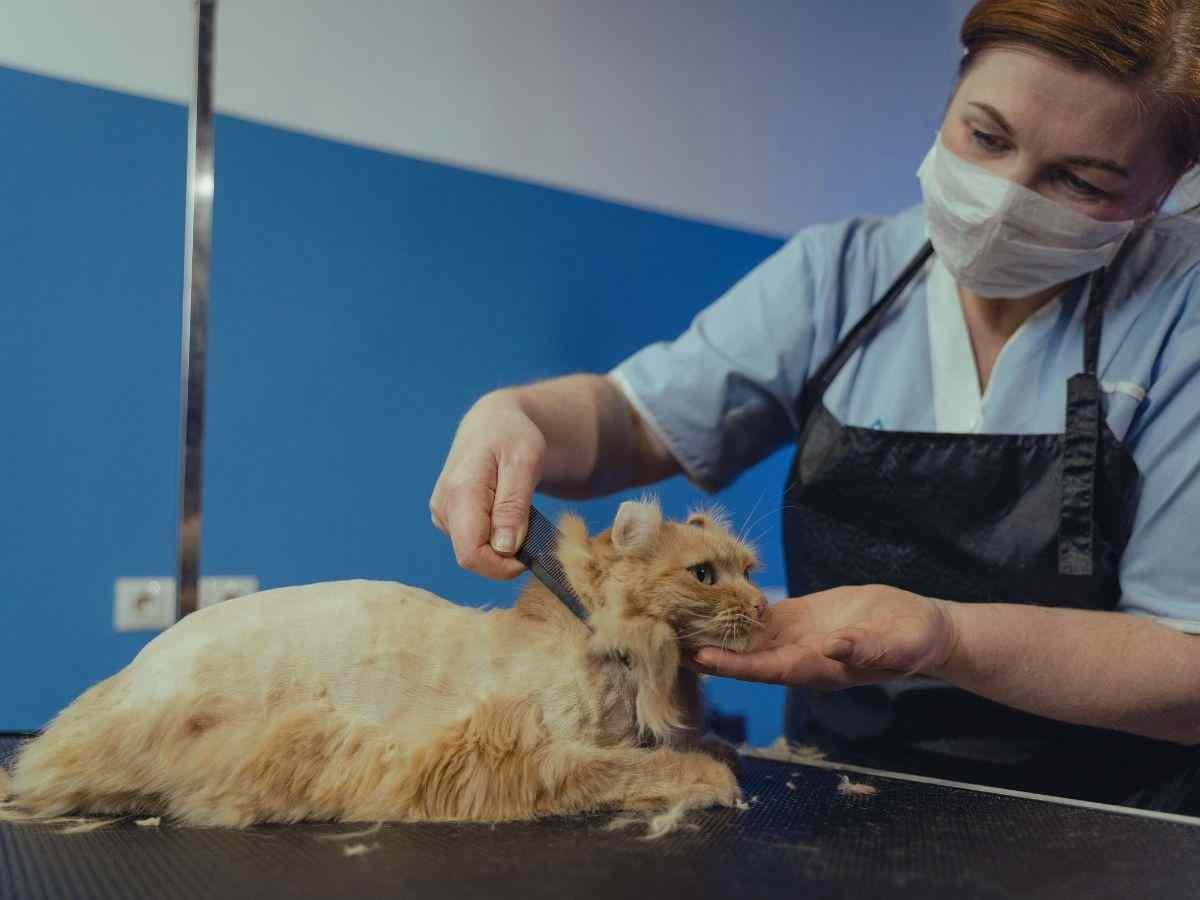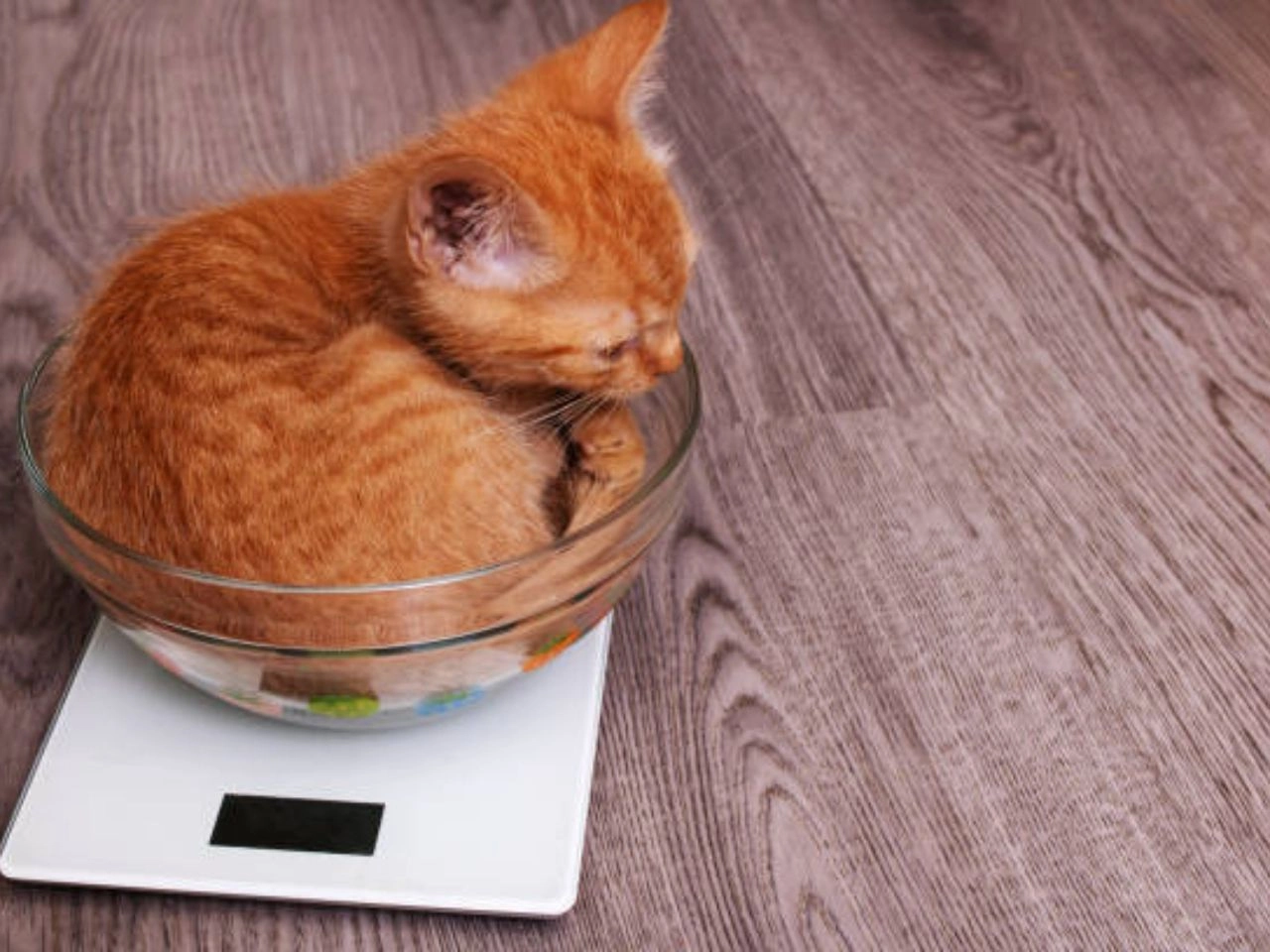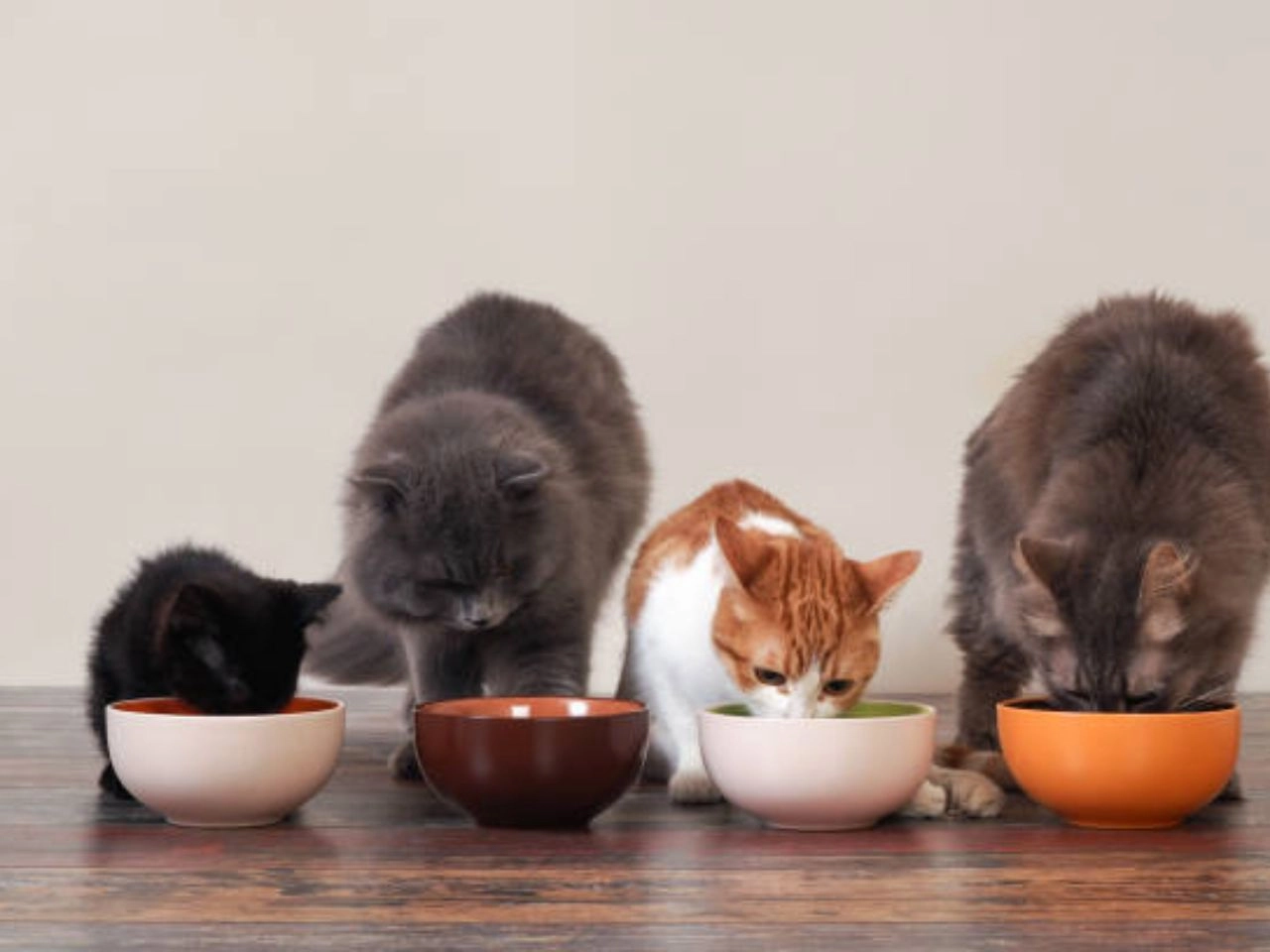Yes, you can feed your cat after deworming. It’s often recommended to maintain their normal feeding schedule.
Deworming your cat is a crucial part of responsible pet ownership, ensuring your furry friend stays healthy and parasite-free. Cats are typically dewormed with either oral medications or injections, targeting internal parasites like roundworms, hookworms, and tapeworms. After deworming treatment, it’s important to continue providing your cat with regular meals to support their recovery.

A familiar diet can also help ease any stress your pet may experience due to the deworming process. While most cats won’t experience adverse reactions, watching for any changes in appetite or behavior post-treatment is always a good idea. By staying observant and maintaining a routine, you contribute to the well-being and comfort of your cat during the deworming period.
Post-deworming Basics of can I feed my cat after deworming
Worms can be a pesky problem for our feline friends. After a deworming treatment, it’s crucial to understand how to care for your cat. This section will guide you through the post-deworming period.
What Happens After Deworming?
The deworming medication causes worms to detach from your cat’s intestines. These parasites then pass through the digestive system and exit the body. The process can be unsettling for your pet. You might see worms in your cat’s feces. This is normal and a sign the medication is working.
Immediate Care For Your Cat
After deworming, your cat needs a quiet space to rest. Keep an eye on their behavior and appetite. Some cats experience mild side effects, such as:
- Lethargy
- Diarrhea
- Vomiting
These symptoms usually pass quickly. Ensure fresh water is always available. If symptoms persist, contact your vet.
Feeding your cat after deworming is important. Offer a small, light meal to settle their stomach. If your cat is not interested in food right away, give them some time. Appetite should return shortly.
Understanding Deworming Medication
Deworming medications help keep your cat healthy by removing harmful parasites. These medicines are crucial for a cat’s long-term health and comfort. Knowing how they work and what types are available can guide you in caring for your pet effectively.
Types Of Dewormers
Dewormers for cats come in various forms. Each targets specific types of worms. Here are the most common types:
- Tablets and Pills: Easy to mix with food.
- Liquid Suspensions: Simple to dose using a dropper.
- Topical Solutions: Applied directly on the skin.
Choosing the right type depends on your cat’s needs and your vet’s advice.
How They Work In Cats
Deworming medications operate by targeting parasites inside your cat. Here’s a simplified explanation:
- Paralyze Worms: Some medications stop the worms’ muscles from working.
- Starve Worms: Others stop worms from absorbing sugar, starving them to death.
Once the medicine takes effect, the cat’s body can naturally expel the dead parasites. This process is vital to ensure your cat remains healthy and parasite-free.
Always consult your vet before starting any deworming treatment. They will recommend the best type and dosage for your cat’s specific needs.
Feeding Guidelines
Feeding Guidelines after deworming your cat are crucial to ensure a smooth recovery. The right food can help your pet regain strength. It’s important to follow a specific feeding regimen that supports your cat’s digestive system. Let’s dive into the best practices to keep your feline friend healthy and comfortable post-treatment.
Best Practices For Feeding Post-deworming
- Wait: Give your cat’s stomach a short break before offering food.
- Small Portions: Start with smaller, more frequent meals to ease digestion.
- Hydration: Ensure access to clean water to prevent dehydration.
- Regular Diet: Resume their usual diet to maintain normalcy.
- Monitor: Keep an eye on appetite and bowel movements for any changes.
Foods To Avoid Right After Treatment
Some foods may irritate your cat’s sensitive stomach post-deworming. It’s best to steer clear of:
| Foods to Avoid | Reason to Avoid |
| Dairy Products | Can cause upset stomach and diarrhea |
| Rich or Fatty Foods | Hard to digest and may lead to discomfort |
| Raw Food | Potential bacteria can complicate recovery |
| New Treats or Foods | Unknown reactions could cause stress |
Monitoring Your Cat’s Health
After deworming, your fluffy friend requires careful observation. Monitoring your cat’s health is crucial to ensure a swift recovery. Look for positive changes in behavior and appetite. These indicate the treatment is working.
Signs Of Recovery
Post-deworming, cats often show certain signs of recovery. Check for these:
- Increased energy: Your cat becomes more playful and active.
- Better appetite: They start eating normally again.
- Weight gain: Lost weight may be regained.
- Improved coat: The fur appears shinier and healthier.
- Normal stool: Watch for firm, worm-free feces.
When To Contact The Vet
While many cats recover quickly, some may need extra care. Contact the vet if you notice:
| Symptom | Action |
| Lethargy | Call the vet immediately. |
| Vomiting | Especially if it persists. |
| Diarrhea | If it continues for 24 hours. |
| Worms in stool | If you see them after treatment. |
Hydration And Deworming
After deworming, taking care of your cat’s needs is crucial. Hydration plays a key role in helping your feline friend recover. Let’s dive into why water is essential and how to ensure your cat stays hydrated.
Importance Of Water Intake
Water aids in flushing out toxins released after deworming. It’s vital for recovery. A well-hydrated cat will have better kidney function and a healthier digestive system. Ensure fresh water is always available for your pet.
Tips To Encourage Drinking
- Place water bowls around your home.
- Use running water fountains to entice your cat.
- Clean water dishes regularly to keep them appealing.
- Add ice cubes to the water for some cats prefer cold water.
- Consider flavored water by adding a bit of tuna juice.
Dietary Considerations
Post-deworming, your cat’s body is in recovery mode. It is vital to support this process with appropriate nutrition. A well-planned diet aids in the replenishment of lost nutrients. It boosts your cat’s immune system. This is crucial for a full recovery.

Nutritional Needs After Deworming
Cats require a balanced diet to recover after deworming. Certain nutrients are especially important:
- Proteins: Essential for repairing tissues.
- Fats: Provide energy.
- Vitamins and minerals: Vital for immune function.
Offer meals rich in these nutrients. Consider a high-quality, commercial cat food designed for recovery. Always ensure fresh water is available.
Adjusting Meal Portions
After deworming, your cat’s appetite may fluctuate. It’s important to adjust meal portions accordingly:
| Appetite Increase | Appetite Decrease |
| Offer a little more food. | Reduce portion sizes. |
| Monitor for weight gain. | Ensure they eat enough. |
Possible Side Effects can I feed my cat after deworming
After deworming your furry friend, you might notice some changes. These are side effects. They can happen, but they’re usually mild. It’s important to know what to expect. This helps you take the best care of your cat.
Common Reactions To Deworming
Cats might feel a bit off after a deworming treatment. Here’s what to look out for:
- Lack of appetite – Your cat might not want to eat much.
- Diarrhea – Their poop could be runny.
- Vomiting – They might throw up.
- Lethargy – They could seem tired or sleepy.
- Itching – They may scratch more than usual.
Managing Side Effects
Don’t worry if your cat feels unwell. These tips can help:
- Give them quiet space to rest.
- Keep water nearby for them to drink.
- Try offering small, tasty meals.
- Watch them closely. Look for any changes in how they act.
- If they seem very sick, call the vet right away.
Most cats bounce back fast. They’ll soon be their playful selves again!
The Role Of Probiotics of Cat After Deworming?
Probiotics play a crucial part in your cat’s recovery after deworming. These friendly bacteria help restore balance in your cat’s digestive system. Deworming medication can disrupt the gut flora. Probiotics bring back the good bacteria. They aid in digestion and boost the immune system. Your furry friend will feel better faster with the right probiotics.
Restoring Gut Health
After deworming, a cat’s gut might need a little extra help. Probiotics are like a health team for the gut. They combat harmful bacteria and support a strong digestive tract. A healthy gut absorbs nutrients better. This means your cat gets more from their food. Probiotics also help firm up stools and reduce diarrhea, common after deworming.
Choosing The Right Probiotic
Picking a probiotic for your cat is essential. Not all probiotics are the same. Each strain serves a different purpose. Look for probiotics made for cats. They should contain strains like Enterococcus faecium or Lactobacillus acidophilus. These are known to help feline friends. Check for a high colony-forming unit (CFU) count. More CFU means more beneficial bacteria. Always consult your vet before starting any new supplement.
- Ensure it’s formulated for cats.
- Check the CFU count.
- Opt for trusted brands.
Remember, a healthy cat is a happy cat. Probiotics help your cat bounce back after deworming. They make their gut strong and digestion smooth. With the right probiotics, your cat will be back to their playful self in no time.
Follow-up Care
After deworming your cat, proper follow-up care is crucial. This ensures the treatment works well and keeps your cat healthy. Let’s explore what steps to take next.
Scheduling Post-treatment Checkups
Regular checkups after deworming are important. These visits help your vet confirm that all worms are gone. Your vet can also check for any side effects from the deworming medicine.
| Time After Deworming | Type of Checkup |
| 1-2 weeks | Initial health assessment |
| 3 months | Follow-up fecal exam |
Continued Deworming Protocols of Cat After Deworming?
Keeping up with deworming is key to preventing future infestations. Your vet will recommend a schedule based on your cat’s needs.
- Monthly treatments for kittens
- Bi-annual treatments for adult cats
These steps help keep your cat worm-free and healthy.
Home Environment After Deworming
Deworming your cat is a big step towards their health. But it’s not just about the medicine. Your home must be safe for your cat after the treatment. Let’s make sure your furry friend stays worm-free. Let’s start with cleaning and disinfection.
Cleaning And Disinfection
Clean well after your cat’s deworming. Worm eggs can live in the environment. They can re-infect your cat. You need to clean all the areas where your cat spends time.
- Wash bedding: Use hot water and detergent.
- Clean the litter box: Do this daily. Use hot water and pet-safe disinfectant.
- Floors and carpets: Vacuum and steam clean often.
- Food and water bowls: Clean these daily too.
Preventing Reinfection
Deworming is not a one-time job. Stop worms from coming back. Here are some tips:
- Regular vet visits: Keep up with check-ups and deworming schedules.
- Hygiene: Keep your cat’s living space clean. Wash your hands after handling the litter box.
- Control fleas: Fleas can carry worms. Use flea control treatments.
- Prevent hunting: If your cat goes outside, try to limit hunting behaviors.

Understanding Cat Behavior
Cats are unique creatures with their own set of behaviors and needs. After a deworming treatment, it’s common to notice some changes in your feline friend. Paying attention to these changes can ensure your cat stays comfortable and healthy.
Changes After Deworming
Cats may experience slight behavioral shifts following a deworming procedure. These can include changes in appetite, energy levels, and bathroom habits. It’s important to monitor these behaviors closely.
- Appetite: Your cat might eat less right after treatment. This should normalize soon.
- Energy: Some cats may seem tired. Rest allows their bodies to recover.
- Bathroom habits: You might notice changes in litter box usage. This is often temporary.
When Behavior Indicates A Problem
Sometimes, post-deworming behavior can signal a problem. Watch for prolonged changes or distress.
| Behavior | Normal | Potential Problem |
| Lethargy | A day or two | More than 48 hours |
| Eating habits | Slight decrease | No eating for over 24 hours |
| Vomiting | Rare, possibly mild | Frequent or severe |
Long-term Health And Wellness
Ensuring the long-term health and wellness of your cat is crucial, especially after deworming. It’s not just about the immediate aftermath but also about preventing future issues. A consistent approach can help your cat lead a healthier life.
Maintaining A Deworming Schedule
A regular deworming schedule is essential for your cat’s health. Here’s how to manage it:
- Consult your vet to set the right intervals based on your cat’s lifestyle.
- Mark your calendar for regular treatments to avoid missing a dose.
- Keep track of any changes in your cat’s behavior or health.
Sticking to a schedule prevents worms from becoming a serious problem.
Comprehensive Parasite Prevention
Along with deworming, protect your cat from other parasites:
- Fleas and ticks: Use monthly preventatives.
- Heartworm: Discuss prevention options with your vet.
- Maintain clean living conditions for your cat.
This combined approach keeps your cat safe from various health risks.
Remember, a well-planned parasite control strategy is key to your cat’s vibrant health. Regular vet visits and preventive measures play a crucial role. This will help your cat stay happy and healthy for years to come.
FAQ(Can I Feed My Cat After Deworming?)
Should You Deworm A Cat Before Or After Eating?
Deworm a cat after it has eaten. Administering deworming medication post-meal aids in better absorption and reduces the chance of an upset stomach.
Can You Feed After Deworming?
Yes, you can feed your pet after deworming. Offer a normal diet unless your vet advises otherwise. Keep fresh water available and monitor for any adverse reactions.
How Long Do Cats Pass Worms After Deworming?
Cats typically expel worms for up to two weeks following deworming treatment. Observing worms post-deworming is common and indicates the medication is working.
How Long Should I Wait To Eat After Taking Deworming Medicine?
Typically, you can eat immediately after taking deworming medication. Always follow your healthcare provider’s specific instructions.
Feeding your feline after deworming doesn’t have to be a puzzle. Wait a short period before offering a light meal. This ensures comfort and aids recovery. Remember, a happy cat is a healthy one. Consult your vet for personalized advice, and keep your pet thriving post-treatment.



